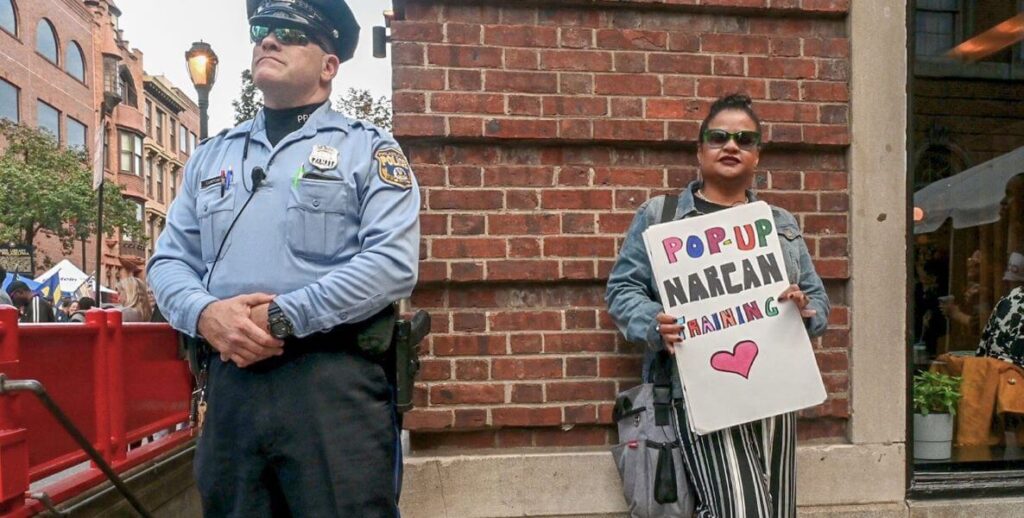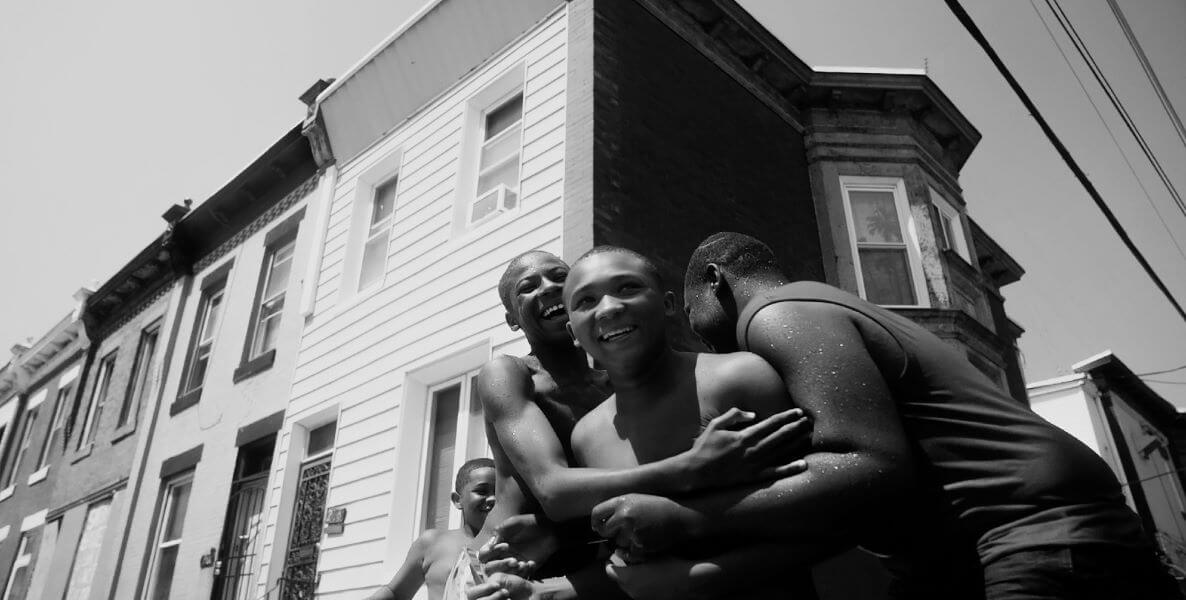On Wednesday, April 20, starting at 7pm, the Bryn Mawr Film Institute on Lancaster Avenue in Bryn Mawr will host a special presentation, Short Films from Kensington, North Philly, and Germantown. This collection of short documentaries focuses on positive stories of renewal, resilience, healing and the rich cultures that endow the character of these communities.
Housed in the historic Seville Theater, the Bryn Mawr Film Institute (BMFI) is a member-supported movie theater and film education center. Through “independent-minded” movie showings, community-oriented special presentations, and an extensive film studies curriculum, the institute seeks to “build community through film culture.”
It was the potential destruction of the Seville Theater in 2002 that spurred Juliet J. Goodfriend, BMFI’s founding president and current board chair, into action. The building, which opened in 1926, was slated to be converted into a gym, which would necessitate the destruction of the cantilever floors and meant it could never again be used as a theater. Through two years of zoning board meetings and fundraisers, the newly-formed nonprofit Bryn Mawr Film Institute purchased the theater and began restoration. It took a decade of work to expand the building, which now includes four state-of-the-art theaters, classrooms, a community gathering space, and a café. Today, it is listed on the National Register of Historic Places.
The institute was forced to close in March of 2020 when the pandemic hit, and stayed closed for a year. To stay engaged with the community, they offered online options for many film courses and held free monthly film discussions, where participants would gather virtually to talk about a movie they had watched in advance on their own time. These were successful enough that BMFI has continued them even as the theater is open again.
Jacob Mazer is the special programming manager and has been with BMFI for six years. “Short films often don’t make it to the big screen after their festival runs,” Mazer explains. “So we’re excited to have an opportunity to give them some attention, which I think they deserve.” The idea to hold a screening of short films came after Joe Quint, director of Hello Sunshine, approached the institute about screening his documentary. Short films are difficult to show in a theater setting, so the right context was important. For BMFI, the appeal of Hello Sunshine lies in its portrayal of the good in a neighborhood that is rarely seen in that light.
“Kensington, North Philly, East Germantown—our neighborhoods have gotten a fair amount of media attention, some from within the city, some from outside the city,” Mazer says. “And while there is definitely good journalism about those neighborhoods, I’ve seen quite a lot of material that covers these neighborhoods in a monochromatic negative light that has this sensationalistic approach, a tone that I think is dehumanizing to the people who live there. They don’t tell a comprehensive story of the neighborhood.”
Quint, a Brooklyn-based photographer and filmmaker, had been working on a long-term project about the impact of gun violence that had taken him to cities nationwide, including Philadelphia, where he had attended Temple University. It was someone at Temple Hospital who clued him in on what Rox Pichardo was doing for her community in Kensington. Though the plan was to meet for an afternoon, talk, and take pictures, Quint realized what he had here was a film.
“With any creative project, you don’t know what it’s going to be when you start, and if you think you know what it’s going to be when you start you’re often wrong,” says Quint. “The more I spoke with her, the more I realized just how layered her story is given the years of gun violence, trauma, and domestic violence; the way she channeled it into service and the trials and tribulations that have come from that—this is a film, this is more than just photos on a website or book of prints. This is a film to really tell the story of this woman’s experience.”

In less than 15 minutes, Hello Sunshine chronicles Pichardo’s daily rounds passing out fruit and Narcan, giving lessons on emergency care on the street and to riders on the Market-Frankford line, and her support for victims and families of unsolved homicides, while weaving in her life’s story of trauma and loss. The result is a powerfully positive statement about people and a community who are far more than just crime statistics.
“I’m trying to tell a very different story about Kensington than what’s been told,” Quint explains. “I mean, if you do a Google Image search of Kensington, you just see the most horrific things in the world. Kensington is so much more than that, you know, there are amazing people living their lives there.”
Getting these stories to the public was exactly what the Institute wanted to do. “What we started thinking about was, what role can we play in that? Is there a different story we can tell?” says Mazer. “And we started looking for films telling different kinds of stories, films that we felt were made with integrity, that treated the subjects in the neighborhoods with respect, dignity, and genuine interest.”
The screening will feature the following films:
Hello Sunshine (2021), directed by Joe Quint, chronicles activist Roz Pichardo in Kensington and her work supporting victims of gun violence, those without homes, and those who are addicted.
Dear Philadelphia (2021), directed by Renee Maria Osubu, won the Best Short Documentary award at the 10th BlackStar Film Festival. The film follows the stories of three fathers in North Philly.
BOMPLÉ (2020), directed by Joseph Spir Rechani, is the story of music teacher Alberto Pagán-Ramírez of Instituto Puertorriqueño de Música, the musical traditions of bomba and plena, and North Philly’s borincano community.
We Are Not Our Mistakes (2021), directed by Jim Tuttle, is about Rev. Dr. Michelle Simmons, who overcame her own struggles to lead Germantown-based Why Not Prosper, an organization devoted to helping women re-enter society after incarceration.
After the screening, there will be a conversation with the filmmakers and the subjects of the documentaries with the public. Attendees are encouraged to purchase tickets in advance online.
![]() RELATED COVERAGE OF ARTS AND CULTURE FROM THE CITIZEN
RELATED COVERAGE OF ARTS AND CULTURE FROM THE CITIZEN
Still from Renee Maria Osubu's award-winning Dear Philadelphia. Courtesy BMFI




